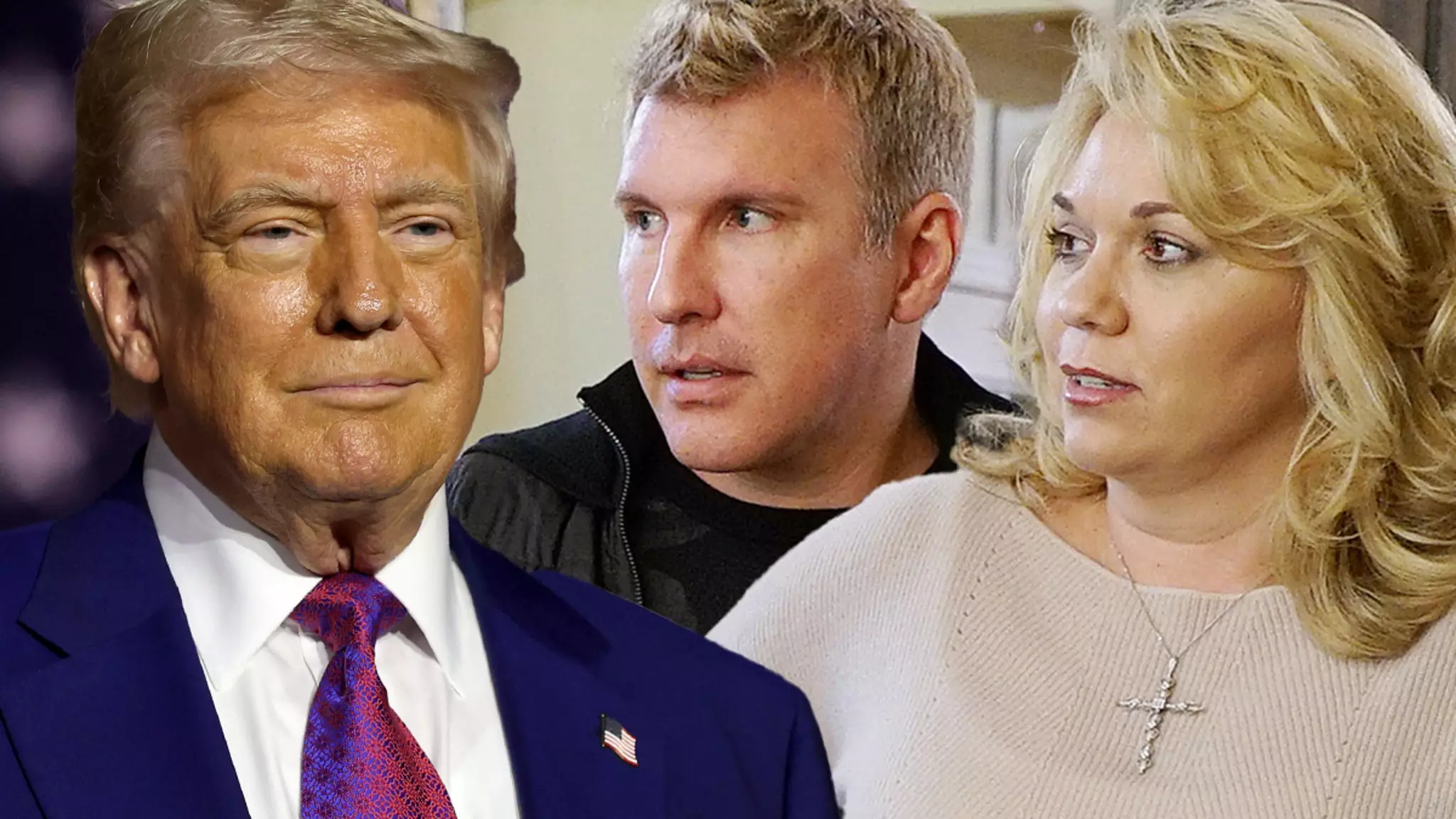The recent pardon of Todd and Julie Chrisley by former President Donald Trump has sparked a flurry of discussion and controversy surrounding justice, privilege, and the implications for the legal system. Sentenced to prison and ordered to repay over $17 million for crimes including bank fraud and tax evasion, the couple’s release not only restores their freedom but also raises the possibility of a significant financial windfall. Under federal law, a presidential pardon impacts any unpaid restitution, completely nullifying that obligation. The Chrisleys, once facing financial ruin, may now find themselves in a position to reclaim their wealth, establishing a narrative where justice appears to navigate through personal and political affiliations rather than through a straightforward legal lens.
Political Undertones: Accusations of Targeting
The Chrisleys’ plight has been portrayed by their family as a case of politically motivated prosecution. With their daughter Savannah asserting during the Republican National Convention that they were targeted due to their conservative beliefs, the story transcends individual legal battles and taps into larger discussions about partisanship in the judicial process. The insinuation that an Obama-appointed judge referred to their family as “the Trumps of the South” further complicates the narrative. This intertwining of political stigma with legal repercussions suggests that the judicial system may not be as impartial as it ideally should be, drawing attention to the vulnerabilities that public figures face when political ideologies clash.
The Power Dynamics of Pardon
This case highlights the considerable power dynamics at play within the U.S. legal framework. The ability of a president to grant pardons can be both a tool for justice and a potential weapon for political favors, depending on who wields it and how. Critics argue that such actions undermine the rule of law, particularly when it appears that justice may not be uniformly applied. In this instance, the Chrisleys’ high-profile status combined with their political affiliations creates a narrative that may seem to normalize a breach of responsibility for crimes that typically merit serious consequences.
A Broader Implication on Public Perception
The Chrisleys’ story raises essential questions about public perception of wealth and privilege within the legal system. Many Americans view the justice system as one that unfairly benefits the affluent, and this latest development could fuel such sentiments. The juxtaposition of the couple’s extravagant lifestyle against the backdrop of their legal troubles and subsequent pardon could lead to a perception that lawful consequences are negotiable for the elite. This narrative resonates deeply with those who feel that the judicial system does not serve equally for all citizens, reinforcing divisions in how justice is perceived in America.
While the Chrisleys celebrate their newfound freedom and potential financial reclamation, this case serves as a potent reminder of the intersections between celebrity, politics, and justice—issues that continue to divide public opinion in a complex societal fabric.

